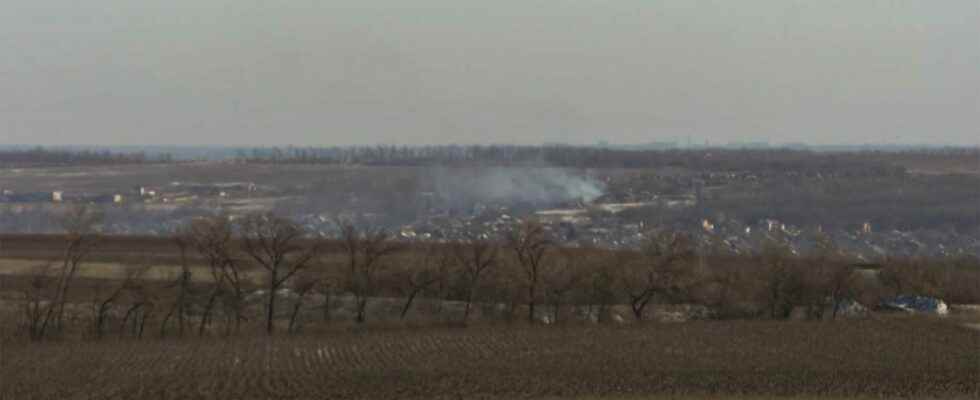Even from a distance it is possible to find out where the small town of Soledar is located, in which until not so long ago 12,000 people lived. Located in eastern Ukraine, in Donetsk Oblast, it could not escape the ravages of war. Worse, it is today at the heart of it, since it is particularly badly placed, on the strategic road leading to Bakhmout, an objective of the Russian army since last May and a living symbol of Ukrainian resistance.
Far from being an objective, Soledar is a stage, and General Dominique Trinquand explains the Russian plan for L’Express: the occupation of Soledar would make it possible to attack Bakhmout from the North, and thus to take it in a vice, the Russian army being already deployed in the East and the South. Then, the fall of Bakhmout would open the way to Kramatorsk and Sloviansk, industrial cities located near the “people’s republics” of Donetsk and Lugansk, integrated into Russia in September by way of a referendum organized unilaterally by Moscow. But this is all still a projection, with Soledar yet to fall, despite “a difficult situation”, in the words of Ukrainian Deputy Defense Minister Gianna Maliar. According to her, the small city is the scene of the “most fierce and violent fighting since the beginning of the conflict”, when Ukrainian President Volodymyr Zelensky evokes him, “a territory covered with corpses”.
A Russian coat of arms to restore
In addition to the military interest, the fall of Soledar would constitute, for Moscow, the first seizure of a Ukrainian city since July, and the total occupation of Lyssytchansk. An eternity without a trophy that can no longer last. Russia needs, at the beginning of the year, a medal to wear. Especially since the battle of Soledar seems to raise an unforeseen problem: the increasingly visible emancipation of the paramilitary group Wagner, supposed to work for Russia but which would like to exist on its own.
This Tuesday, January 10, the leader of the group, Evgueni Prigojine, announced that his men had conquered Soledar, “without any other unit having participated in the assault”. An autonomous and impertinent communication, which immediately made the Kremlin react, asking Wagner to wait for “official declarations”, before claiming anything. “It is inconceivable for Putin that Wagner suggests that the capture of Soledar is not the work of the Russian army”, specifies General Trinquand. And it is partly in the light of this nascent rivalry that the former head of the French military mission to the UN justifies the change of man at the head of the command of the special operation. The new one, Valeri Guerassimov, being less linked to Prigozhin than was the old one, Sergei Surovikin.
Finally, the battle of Soledar has a financial stake, which interests Russia as much as the Wagner group, chief looter of the conquered territories. It is, in fact, a mining city of primary importance, from which seven million tons of minerals are extracted each year: gypsum, clay, chalk, and above all salt… “The name of the city alone indicates the importance of salt in the economic life of the city since, in Ukrainian, Soledar can be translated as gift of salt“, observes the historian Galia Ackerman. A term also linked to the notion of independence, the locality having adopted it on July 5, 1991, replacing its Soviet name, Karlo-Libknehot. A title that the inhabitants do not hear not find.
